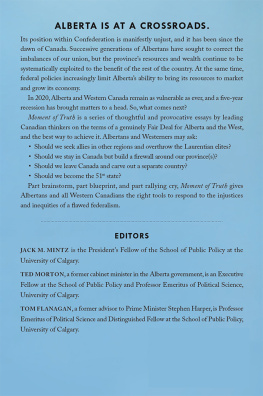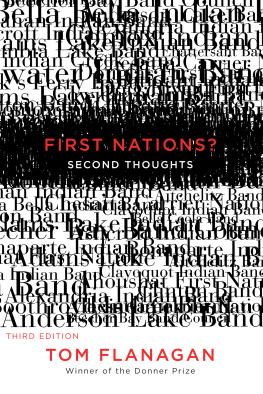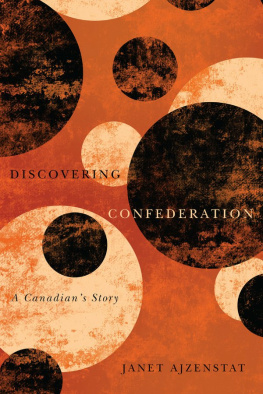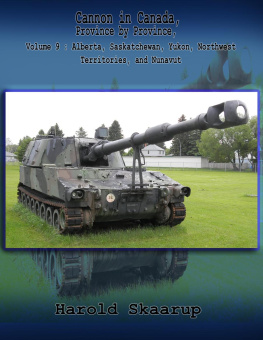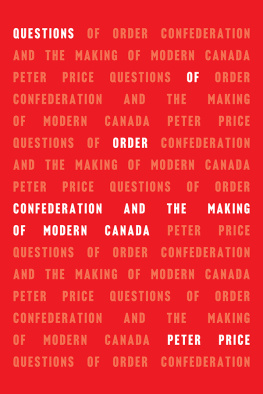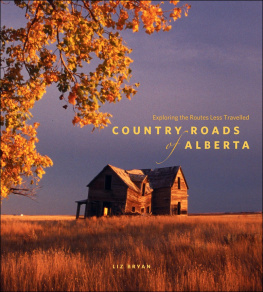

Sutherland House
416 Moore Ave., Suite 205
Toronto, ON M4G 1C9
Copyright 2020 by Jack M. Mintz, Ted Morton and Tom Flanagan
All rights reserved, including the right to reproduce this book or
portions thereof in any form whatsoever. For information on rights and
permissions or to request a special discount for bulk purchases, please
contact Sutherland House at
Sutherland House and logo are registered
trademarks of The Sutherland House Inc.
First edition, September 2020
If you are interested in inviting one of our authors to a live event or
media appearance, please contact
and visit our website at sutherlandhousebooks.com for more
information about our authors and their schedules.
Manufactured in Canada
Cover designed and book composed by Lena Yang
Library and Archives Canada Cataloguing in Publication
Title: Moment of truth : how to think about Albertas future / editors, Jack M. Mintz, Ted Morton & Tom Flanagan.
Other titles: Moment of truth (Toronto, Ont.)
Names: Mintz, Jack M., editor. | Morton, F. L. (Frederick Lee), 1949- editor. | Flanagan, Thomas, 1944- editor.
Description: Includes bibliographical references.
Identifiers: Canadiana 20200293893 | ISBN 9781989555361 (softcover)
Subjects: LCSH: SecessionAlbertaForecasting. | LCSH: AlbertaPolitics and governmentForecasting. | LCSH: AlbertaEconomic conditionsForecasting.
Classification: LCC FC3676 .M66 2020 | DDC 971.23dc23
ISBN 978-1-989555-36-1
T HE CONTRIBUTORS TO THIS BOOK deal with the problems of both Alberta and the West in Canada. By the West we mean the prairie provinces plus the interior of British Columbia. While the West and Alberta have much in common, each province has distinct issues and makes its own decisions. In this preface, I speak about both because I am an Albertan and a westerner at the same time.
I know the authors well, and they are all independent thinkers in the classical liberal tradition. They are not the type to be carried away by the latest intellectual trend and are often the first to say when the emperor has no clothes. For them, society should shape its future based not on fads or popular whims but on principles derived from objective facts and reason. Still, their tenacious preference for hard realities cannot hide their passion. They are emotional about our society and have dedicated much of their careers to public policy and, in some cases, public life. They have sacrificed material gain in their pursuit of ideas that matter. Their personalities and their values shine through their contributions to this book.
The contributors are people who care at a human level about issues important to society. They know that who we are as a culture, a people, and society, is not the facts and statistics, but rather the stories we tell ourselves. Across this broad country, it turns out the stories we tell ourselves about what it means to be Canadian are different, and they depend greatly on when Canada started for us. Canada is not a common date or time; it varies from place to place. Our First Nations would be the first to tell you that.
First Nations see Canada from time immemorial. Quebec sees Canada beginning in the time of Champlain. The Atlantic Provinces had a second origin as English colonies after their first French foundation. Canada only starts for Ontarians with the loyalist migration and the early days of the town of York. British Columbia has its own origins starting with Captain Cooke, and Canada comes later. For Albertans the country really begins with railways and settlements. It should be no surprise that we tell ourselves unique stories about what it means to be Canadian.
Quebec and Alberta are on the opposite ends of Canadian history and the differences are accentuated by language. But the differences between even Alberta and Ontario are profound. We each know our own stories well and can fall into a trap of assuming they are the only right ones. Yet our stories across this country, based on different histories, are all valid even when they are contradictory. It just means our histories create cultures across Canada that are in some ways distinct and often exceptional.
By way of example, many commentators have noted the culture of the American West is in some ways more similar to the Western Canada than to the rest of Canada. This makes sense based on the timing of our histories. Some of my great-great-grandparents came to Alberta from America as part of their migration west starting in Scituate, Massachusetts, in 1630. The border was open. For an American moving west, Alberta was likely less of a culture shock than for many Europeans and Asians who came at the same time. And my familys experience is not unusual. The American progressive migration, American oilman migration, the gold rushes, all set the stage for distinctly different attitudes to the United States in the West.
Ours is a recent story and one of the newer places in the world. Our first permanent settlement was 1788 in Fort Chipewyan. This was a Northwest Company corporate post. European settlement didnt start in a meaningful way until the railroad arrived in Calgary in 1883. Our post-European settlement history is so recent it literally came from my great-grandmothers lips to my ears. This newness means that more than other areas of Canada, Albertas culture is a state of mind. It is an emerging attitude that you can be here for six generations and still not understand, or you can be here for six months and completely get it.
Even today, more people are from away, than from here. This means we have little shared history. Plus, we are remote. We were one of the last places in the world to be settled because we are a far-away place at the edge of the world. It takes a certain type of culture to ensure there even is a future to share, when you choose to clear a homestead connected to the world only by a long thin ribbon of railroad.
Our short history and newness mean that the Wests shared values and culture are based more on a shared future than a shared past. A shared culture based on a shared future is welcoming of all who want to share that future. It is more naturally a meritocracy, measured by who can best contribute to a better future. This begat the rugged individualism and celebration of risk-takers, wildcatters, and entrepreneurs that Alberta is known for. However, with little foundation or laurels to rest on, and help very far away, it also necessitated a culture of cooperation and collective effort. It was Western Canada that introduced social credit, socialized medicine, and suffrage for women. In these provinces you will still find large credit unions and co-op grocery stores.
Albertas story is one of difficult trials and great contributions to Canada. Albertas entrepreneurialism and financial strengths are matched by political and social leadership. Prairie socialists were trailblazers for a better Canada. Even more than conservatives, prairie socialists tended to be cash and carry and not in favour of debt on their personal or government balance sheets. Western women were the ones to challenge the status quo to be declared persons, convincing the British House of Lords to overrule a hidebound eastern Canadian judicial decision ruling that they were not. Western conservatives and prairie socialists often disagree on methods, but we share a culture of looking forward to a common and better future.
Because settlement was so recent, we also are highly likely to have a personal connection to the land, where our family recently came from. It also means we have the closest connections with First Nations who also heard their pre-European histories from their ancestors lips. Our dealings with First Nations are recent dealings, and just like family members who know each other the most, we squabble more. But no one in the country has closer or more successful economic ties with First Nations than westerners.
Next page
